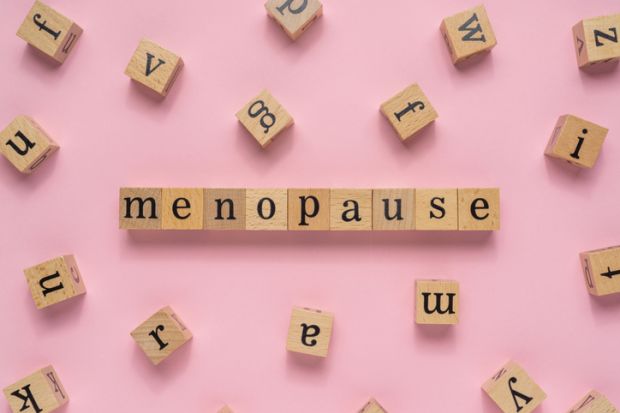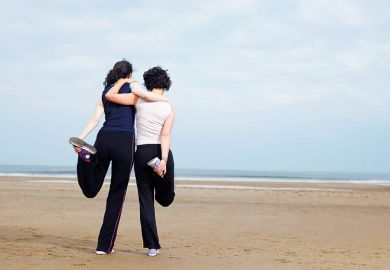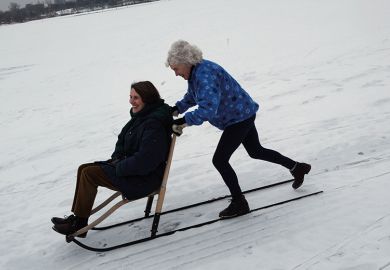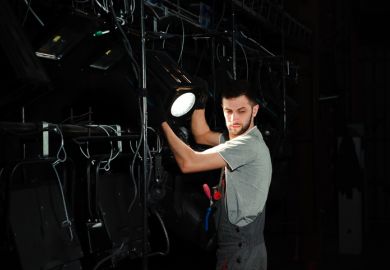World Menopause Day was established in 1984, but it is probably fair to say that this year’s, which was held on Wednesday, garnered more attention than ever – certainly in the UK.
We are currently surrounded by myriad voices claiming expertise, expounding on personal experience and medicalising the menopause. But from a layperson’s point of view, it’s worth pausing a moment to ask, “What is the menopause?” At the recent launch of the Scholarly Association for Menopausal Studies (SAMS), it became apparent that there is some real confusion about the definitions and symptoms.
In a room crowded with women (and three brave men), there was a vast spectrum in terms of individual experiences. Questions were asked about hormones and symptoms; taboo topics such as the perimenopause’s effect on masturbation and sex during and after the menopause were also raised. It is no wonder there is so much confusion when it is unclear when the perimenopause starts and when menopause is diagnosed only retrospectively – one year from the date of a woman’s last period. It has a nebulous range of symptoms, from tiredness to weight gain, muscle aches to heart palpitations, headaches to loss of libido. All of which could easily be mistaken as the results of a generally stressful life – not least an academic one.
In the past few years, discussion of the menopause has been extensive on traditional and social media. Debates about the pros and cons of hormone replacement therapy (HRT) are raging. Demands for better treatment in the workplace are being issued. Questions are being asked about the lack of research into peri-/menopause, as well as women’s health more widely.
This was the driving force behind the creation of SAMS by Marie Mulvey-Roberts, professor of English literature at the University of the West of England, Jill Kirby, senior lecturer in history at the University of Sussex, and Ruth Heholt and Joanne Ella Parsons, professor of literature and culture and lecturer in English and creative writing, respectively, at Falmouth University. The association aims not so much to address the scientific questions around the menopause as to open up the conversation even further by creating a cultural space for the peri-/menopause in the arts and humanities.
Bar the occasional wise woman, older women have often been demonised in folklore, fairy tales, literature and film. Wicked stepmothers, witches, bitter spinsters and cranky crones litter the pages of Western literature, particularly children’s literature. Older women, we are taught, are bad.
In the Victorian era, the menopausal woman was often seen to be dangerous and emotionally unstable. A particularly well known case in point, of course, is Dickens’ Miss Havisham, who sits like a spectre over her bride-cake, her ageing body plotting revenge against young love.
The 20th century is also strewn with menopausal women, if you choose to look: Mrs Dalloway, Bette Davis as Baby Jane Hudson, du Maurier’s Mrs Danvers, the Chance sisters from Angela Carter’s Wise Children (1991), Patsy and Edina from Absolutely Fabulous. Yet it is possible to see these examples as, at least in some ways, positive. Like the paranormal, cosy crime novels where women hit the peri-/menopause and start discovering their witchy powers, it is perhaps time for the Crone to strike back.
We began our scholarly discussions at the fabulous Crones, Crime, and the Gothic conference held at Falmouth University in 2022, where a set of international scholars had great fun exploring how older, menopausal and postmenopausal women are spoken about and represented in different cultures, time periods and locations. SAMS’ first event, organised by Marie and held in Bristol, brought together scholars from the creative industries and the humanities with various doctors and practitioners to discuss “the change” in all its guises. The range of personal experiences, historical and creative interrogations, and professional approaches revealed that more creative joined-up thinking and interdisciplinary approaches to the peri-/menopause are desperately needed.
But the humanities can lead the way in terms of both extending the conversation and engaging differently with the medical and practical concerns around peri-/menopause. They can advocate for change and diversity. And they can raise public awareness. For instance, the event in Bristol saw the launch of a website created and sponsored by UWE Bristol called Menopause: New Perspectives, containing pages on the impact of the menopause on novels, films, art, musicals and in history. And SAMS is following the example set by London’s Vagina Museum and will shortly launch the first online Menopause Museum. This inclusive and interactive space will showcase more than K-Y Jelly and fans. We are actively looking for cultural and historical artefacts that reveal the diversity of representations and lived experiences of peri-/menopause, past and present. Can you think of any items to include in the Museum? If so, please do email us with your thoughts.
Through our research and creative practices, we can make a significant contribution to this powerful cultural moment and raise up the diversity of older women’s voices and experiences, instead of simply erasing her by deciding she is irrelevant – or burning the metaphorical witch. In other cultures, the Crone phase of life is celebrated. It is time that our own culture caught up.
Joanne Ella Parsons is a lecturer in English and creative writing, and Ruth Heholt is professor of literature and culture, both at Falmouth University.
Register to continue
Why register?
- Registration is free and only takes a moment
- Once registered, you can read 3 articles a month
- Sign up for our newsletter
Subscribe
Or subscribe for unlimited access to:
- Unlimited access to news, views, insights & reviews
- Digital editions
- Digital access to THE’s university and college rankings analysis
Already registered or a current subscriber?







